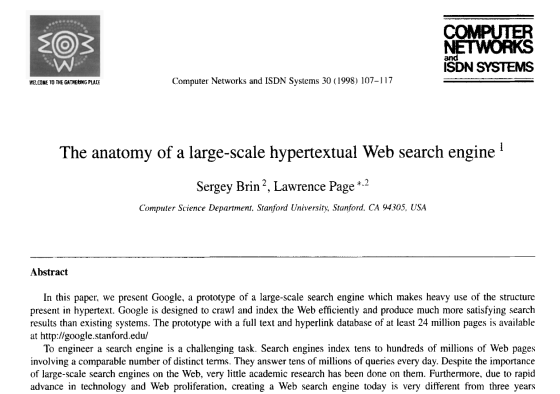The 7 most influential papers in the history of computer science

Software engineer Mateus Lima introduced seven representative scientific papers that have significantly changed the history of computer science and have had a strong influence on future generations, starting with Alan Turing's computing machine.
The 7 Most Influential Papers in Computer Science History – Terrible Software
Lima introduces seven films, but prefaces his list by saying that it is 'purely subjective.'
◆1: Computable numbers and their application to decision problems / Alan Turing (1936)
Alan Turing laid the foundations of computing in the 1930s, when the idea of a 'programmable machine' was still thought of as pie in the sky. In this paper, Turing sketched out a hypothetical 'Turing Machine,' proving that if something can be computed, then in principle a machine can do it.
Today, every programming language, every piece of code, follows Turing's rules. Even when we talk about cutting-edge quantum computing, we still refer to the boundaries Turing described, which Lima said shows the power of a single paper published in the mid-1930s.
On Computable Numbers, with an Application to the Entscheidungsproblem
(PDF file) https://www.cs.virginia.edu/~robins/Turing_Paper_1936.pdf

◆2: Mathematical Theory of Communication / Claude Shannon (1948)
After Turing told us what machines could and couldn't do, this was the paper that showed us how to actually move information around. Shannon invented 'information theory' which allowed us to talk in a rigorous way about bits, entropy, and other measurable information.
'Every time you send a text, stream a video or call your mom on FaceTime, you're using Shannon's ideas,' Lima said.
A Mathematical Theory of Communication
(PDF file)

◆3: A Relational Model of Data for Large Shared Databanks / Edgar F. Codd (1970)
This paper predicted that computers capable of both calculation and communication would eventually be buried in mountains of data, and described the 'relational model' that enables data storage and query. It has influenced a wide range of modern technologies, including database 'tables' and SQL.
A Relational Model of Data for Large Shared Data Banks
(PDF file)

◆4: The Complexity of Theorem Proving Procedures / Stephen A. Cook (1971)
This paper shows that the '
The Complexity of Theorem-Proving Procedures
(PDF file) https://www.inf.unibz.it/~calvanese/teaching/14-15-tc/material/cook-1971-NP-completeness-of-SAT.pdf

◆5: Protocols for Intercommunication in Packet Networks / Vinton G. Cerf, Robert E. Kahn (1974)
In the early 1970s, the networks that were beginning to be built around the world, including ARPANET, were all operating according to different hardware and software protocols, making it impossible for them to communicate with each other. This problem was solved when Cerf and Kahn invented a network-crossing protocol called the Transmission Control Protocol (TCP), which led to the construction of an international network of computer networks, the Internet.
A Protocol for Packet Network Intercommunication
(PDF file) https://www.cs.princeton.edu/courses/archive/fall06/cos561/papers/cerf74.pdf

◆6: Information Management: A Proposal / Tim Berners-Lee (1989)
Tim Berners-Lee proposed a global hypertext system, complete with hyperlinks, URLs and HTTP, and this paper is considered the invention of the World Wide Web.
Information Management: A Proposal
(PDF file)

◆7: Anatomy of a Large-Scale Hypertext Web Search Engine / Sergey Brin, Larry Page (1998)
Sergey Brin and Larry Page are the founders of one of the search engines that made it easier to consolidate and display the information overflowing on the Internet. They are credited with exponentially increasing the number of relevant search results for keywords and making the Web searchable. They are both founding members of Google.
The Anatomy of a Large-Scale Hypertextual Web Search Engine
(PDF file)

'We're surrounded by new things. Mind-blowing AI breakthroughs, quantum computers, JavaScript frameworks -- it's all very exciting, but the foundations are important. Without them, we're just piling on new toys without fully understanding the foundations. These papers remind us where our core concepts came from: data structures, algorithms, and the very web,' Lima said.
Related Posts:
in Note, Posted by log1p_kr







